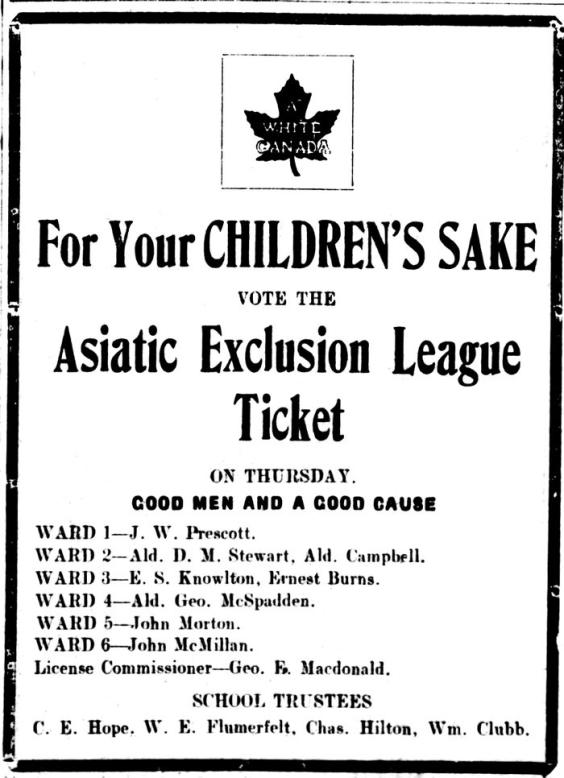More than a century before Trump and his supporters vowed to "Keep America Great," White segregationists were striving to keep California White. They passed the state's flagrantly anti-Asian "Alien Land Law" on this day 110 years ago in 1913. An #AAPIHeritageMonth 🧵 1/ 

The growing presence of Japanese people alarmed racist White Californians. They formed the Asiatic Exclusion League in 1905. By 1908, the League had about 100,000 members. By the way, in 1910, about 40,000 Japanese people lived in California out of a population of 2.4 million. 2/ 

In the 1900s, 1910s and 1920s, the racist actions of the Asiatic Exclusion League were numerous. They boycotted Japanese-owned restaurants and tried to segregate the 93 Japanese students in San Francisco's public schools from the rest of the student body in 1906. 3/ 

The Alien Land Law was the most sweeping policy product of the League. At the time, only Black and White people could be US citizens. The law prevented immigrants who couldn't become citizens - such as Japanese farmers - from owning land in California for more than 3 years. 4/ 

The Alien Land Law drastically reduced Japanese land ownership in California and likely increased elite White land ownership. In the 1920s, Japanese immigrant landowners lost at least 100,000 acres of land, not to mention the land taken from immigrants of other nationalities. 5/ 

The Asiatic Exclusion League was not satisfied with trampling upon the rights of foreign-born Asian Americans. In 1920 and 1923, California expanded the law to exclude U.S.-born children of Asian immigrants and Asian-owned businesses from owning or leasing land in the state. 6/ 

California's Alien Land Law helped spur other states to pass similar legislation, including Arizona (1917), Louisiana (1921), Washington State (1921), and Oregon (1923). By 1950, an additional eight states had anti-Asian laws like this on the books. 7/ 

Racist violence and policy had facilitated the stealing of land from Native peoples, only to follow that up by driving Black, Latinx, and Asian people from land they owned. Racist ideas still justified the “manifest destiny” of “civilized” White people to take and “develop”... 8/ 

... the lands previously inhabited or owned by “uncivilized” peoples of color. Racist ideas covered up the racist land stealing, the resulting handouts for White people, the resulting destitution of families of color by claiming they were destitute because they were inferior. 9/ 

Elites have taken land owned and inhabited by low- and middle-income White people (at lesser rates). The annals of U.S. history are filled with elites pushing laws to take the land and property of non-elites. As we say about Black history, Asian history is American history. 10/ 

Although challenged several times in the ensuing decades, California's anti-Asian Alien Land Law was enforced until the 1952 Supreme Court decision in Sei Fujii v. California. The court declared the law a violation of the Equal Protection Clause of the 14th Amendment. 11/11 

• • •
Missing some Tweet in this thread? You can try to
force a refresh

















